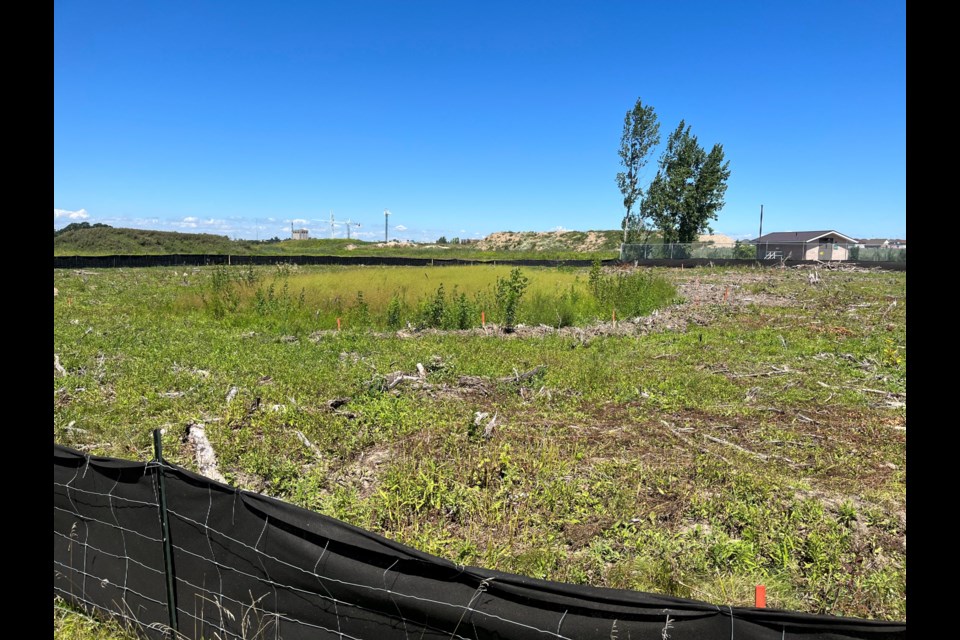Concerned residents inundated local eco-activist group ‘Friends of the Richmond Street Forest' with calls this week, as workers were seen mowing part of the bulldozed frog pond on the corner of Decew Road and Richmond Street.
Luckily, there is no need to worry as it was just part of the city’s efforts to restore the protected frog pond back to its former glory.
“We’ve received a lot of messages about what’s been going on there and we’ve been keeping our eye on it,” says ‘Friends of the Forest’ member Rachael Haynes, in an interview with ThoroldToday. “There were tall grasses and weeds growing up. Some of the deep rifts that were created with the bulldozing, some of those parts actually needed to be dried up so that they can get all of the frogs in one place.”
Even though the works were part of the pond's restoration, Haynes wishes the city had informed the ‘Friends’ group about them beforehand.
“It might seem like a little thing cutting a little grass but we have members asking what’s going on and we don’t know because the city hasn’t kept us in the loop,” she says. “We don’t need a meeting for every thing but an email or heads up would have been appropriate. We didn’t know and we didn’t hear from the city about it until it was already happening. ”
The next step for the restoration of the pond is a process called grading to make sure that the frog pond and the storm water pond next to it are kept as separate entities.
“With the storm water pond, which is collecting your pollutants from your city streets, we want to make sure that nothing is sloping into the frog pond itself,” Haynes says. “We’re trying to keep those pollutants out. Something like grading is actually going to make sure that the land is sort of sloping away from the frog pond.”
Haynes is in frequent touch with the restorative ecologist taking care of the pond and she says that the project is moving along quite well.
“They’ve been documenting what creatures they have found,” she says. “We definitely still have chorus frogs in there. There are a number of leopard frogs, snakes, animals like that. The head ecologist was finding baby snakes as well so not only are they using it as a way to pass through but they’re actually procreating and nesting there.”
Whatever animals are found in the pond, the ecologist is trying to keep safe.
“They’re keeping the chorus frogs in that wet space that’s being protected with the old logs,” Haynes says. “Anything else that they’re finding they’re bringing across the street to that Lake Gibson corridor. They’re keeping track of them all. I have to say that the ecologist team is doing a really great job of showing what’s viable in that area and what’s choosing to stick around even throughout all of the destruction.”
